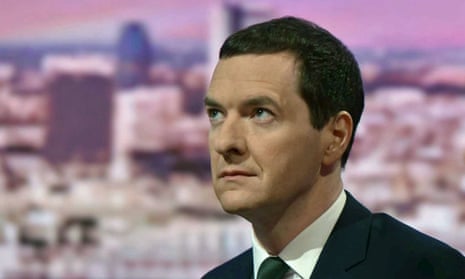Government spending. It’s hard to think of a more important domestic political subject. Nothing MPs do through the year matters more than when they decide how much the state spends, where the money comes from and how it is distributed.
By rights, that makes today a hugely important date in the political calendar. Today we don’t just get the annual autumn statement, which is always one of the two big days in the Treasury’s year. This time we also get the comprehensive spending review, setting targets and budgets for the three years from 2016 to 2019, by which time the next general election will be looming.
Which makes today the biggest day in the whole of the current parliament, does it not? Well, only up to a point. No one can deny that George Osborne’s autumn statement is likely to involve a big reassessment of Britain’s uneasy public finances, following his overconfident budget in July. And it’s obvious that the spending review will also be a defining document for the politics of this parliament, setting the government’s economic objectives in stone.
But there is another way of looking at these announcements. There is a very strong case for saying that both rituals are largely unnecessary and that, in particular, they allow the Treasury and the chancellor to get far too tough a grip on the government’s strategy and approach. While accepting that today’s speech and announcements are indisputably important as framing exercises, it is also important to stress that they don’t need to be treated as respectfully as they are. In short, we might be better off without either of them.
But surely we have to have them? No we don’t. Unlike the annual budget, the autumn statement and the spending review are recent inventions: the autumn statement dates from 1976; the spending review only from 1998. Neither of them is an ordained or ancient part of the way UK government works. The autumn statement is a purely political confection. It has no economic purpose. It exists primarily to allow the chancellor to command a second big parliamentary event of the year (indeed this is the third of 2015, in which Osborne has already delivered two budgets, one of them only four months ago).
In essence the same applies to the spending review, which was invented by Gordon Brown ostensibly to give the appearance of having a sensible long-term economic strategy. It succeeded in that political aim, though the strategy didn’t turn out as cleverly as Brown claimed and most observers accepted at the time. In reality, the spending review was conjured up to enable Brown to bind all his rival departmental ministers into decisions from which they could not escape. The spending review is about the assertion of political power — the chancellor’s power — not economic strategy.
Some might say that it is surely a good thing for a government to have a spending strategy, and to display consistency and rigour. That would be fine if they could be confident that governments could bend the economy and events to their will. But they can’t. So if something unforeseen happens to the economy or to British public opinion in the next three years, which it probably will, the spending review will be unpicked to allow the government to change course. The disciplines are only enforcable if it suits the government to continue with them. Rightly so in my opinion.
Rather than making a virtue of the apparently immutable strategies, departmental allocations and priorities that the chancellor will announce today, it might be better to be more flexible and responsive on a year-by-year basis. That’s what happened right up to 1998. Until 1998, there was an annual public spending round, which reflected the priorities, economic and fiscal, of the day. What’s wrong with that? Everyone knows that most economic forecasts are wrong. Pretending that a government can set a course for three or four years ahead is not just folly, but dangerous. Well-run, flexible businesses don’t operate that way — and for a reason.
Many years after leaving the Treasury, the late Denis Healey said: “Like long-term weather forecasts, economic forecasts are better than nothing, but their origin lies in extrapolation from a partially known past through an unknown present to an unknowable future, according to theories about the causal relationships between certain economic variables which are hotly disputed by academic economists, and may in fact change from country to country or from decade to decade.”
That’s still true today. Forecasts are haphazard and uncertain. There is nothing of importance that Osborne will say today that can be relied upon as a crystal-clear statement about the economy. As with Brown, whom he so much resembles, today is about the deployment of power and the ambition of the chancellor to become prime minister.
The current system allows control-freak chancellors and ideologues to put government and politics in a straitjacket. The system is an inefficient mess, providing an illusion of strategy in a volatile climate. It’s unhelpful to democratic government. Much better to have one budget day and one public spending settlement each year, on the same day. Today is certainly important. But only because we have allowed over-mighty chancellors and the over-mighty Treasury to make it so. The comprehensive spending review and the autumn statement are needless rituals. Abolish them.

